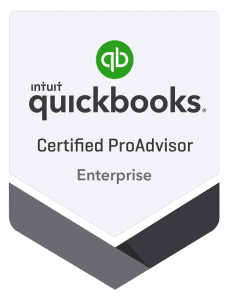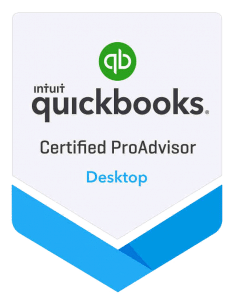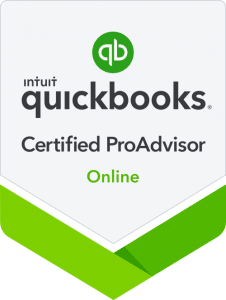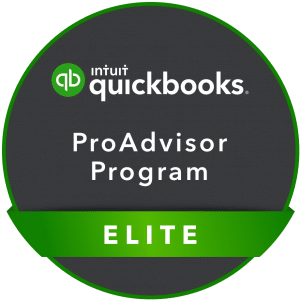Managing finances can feel overwhelming for small business owners. There’s always something to track like expenses, payroll, tax deadlines, and unpaid invoices. It doesn’t take much for things to spin out of control. When financial planning is reactive instead of proactive, businesses can struggle just to stay caught up. It’s not always about a lack of effort or commitment. Sometimes it’s about not having the right systems or support to make smarter decisions and stay organized.
Having strong financial management helps a business stay grounded and plan for the future. It allows for decisions based on facts rather than guesses. Whether you’re trying to stay on top of bills, adjust budgets as costs rise, or figure out how to pay employees when cash flow dips, a solid approach to money management sets you up for success. Let’s look at some common financial challenges and everyday ways to handle them better.
Identify Key Financial Challenges
Small businesses often deal with the same financial hurdles, no matter the industry. These issues can hold back growth, create confusion, or even impact daily operations when left unchecked. Though every business runs differently, some problems show up often.
Some of the most common challenges include:
– Cash flow that doesn’t align with outgoing expenses
– Creating or maintaining a realistic budget
– Struggling with accurate forecasting
– Delays in accounts receivable
– Staying compliant with tax and payroll obligations
For example, picture a local bakery that sells steadily but doesn’t get paid quickly by customers. If payroll is due before those payments come in, the business might feel squeezed. Even when profits look fine on paper, cash in the bank paints a different story. Business owners in this position find it hard to juggle rent, supplies, payroll, and other costs.
Financial problems aren’t always isolated. Sometimes it’s a stack of smaller issues like poor budgeting, late bill payments, or forgotten tax deadlines that snowball into real trouble. Spotting these signs early is the first step toward putting better systems in place to keep things running smoothly.
Practical Solutions To Improve Cash Flow
Good cash flow makes a business more flexible and less stressful to operate. You’re able to pay expenses, keep employees happy, and invest in growth opportunities with confidence. Even small changes to how and when you collect money can help keep the cash rolling in more smoothly.
Here are a few ways to improve cash flow:
1. Send invoices right after a job or sale wraps up. The quicker a client gets the bill, the sooner they’ll pay.
2. Adjust payment terms from net-30 to net-15 when possible to encourage quicker payments.
3. Use automated reminders or payment platforms to make it easier for clients to pay on time.
4. For big expenses, work out a payment plan if you can. Paying in smaller chunks helps manage cash flow.
5. Review your billing practices every month. Keep an eye out for late-paying clients or trends.
6. Plan payments to go out after expected income lands in your account.
7. Look at your cash flow weekly, not just monthly. That way you stay ahead and can fix issues early.
Forecasting your cash flow is another habit worth developing. Whether you estimate cash movement each week or every two weeks, looking ahead helps prepare for slow periods or seasonal shifts. A quick planning session, even using last year’s numbers, gives you more control.
Tracking cash flow doesn’t require complex spreadsheets. It’s about regular check-ins, spotting patterns, and adjusting your timing before problems get bigger. Simple timing tweaks can go a long way in keeping money flowing.
Budgeting Techniques for Small Businesses
A good budget acts like a plan for your business. It shows where your money’s going and keeps spending in check. For small businesses, budgeting helps reduce surprises and supports smarter choices.
Start with the basics: list all expected income and expenses. See where you’re likely to make money and how you’ll spend it. That breakdown shows areas where you might need to make changes.
You can try different budgeting strategies depending on your business needs. Zero-based budgeting means starting from zero every period and justifying every dollar you plan to spend. This is helpful to trim the fat and avoid creeping costs. In contrast, incremental budgeting takes last year’s budget and adjusts it for new goals or expected costs. It’s quicker and works best when income and expenses are predictable.
Once you choose a method, stick with it for a while but don’t let your budget sit untouched. Review it every few weeks or months to see if it still tracks. Is your spending on target? Are there any changes to address? Use those check-ins to tweak your plan.
If your first approach doesn’t work out or things shift with the market, don’t be afraid to change how you budget. Staying flexible and willing to update as needed will help keep your plan useful in the long run.
Utilizing Technology for Financial Management
Technology makes managing business finances easier. It takes some of the pressure off and keeps everything organized. Instead of stacks of paper and hours of manual work, software steps in to automate and track.
Look for accounting software that handles things like:
– Invoicing
– Expense tracking
– Payroll support
– Bill reminders
– Real-time financial reporting
Many of these tools are built with small businesses in mind. Some let you connect banking info directly, so you always see up-to-date numbers. Cloud-based software is useful because you can check financial details from your office or while out of town. You’re not stuck at your desk, and it’s easier to get others on the same page.
Budgeting tools, cash flow dashboards, and receipt scanners also help organize records without adding manual work to your day. These apps make it easier to spot trends and avoid last-minute issues.
Choosing the right tool might take time, but it’s worth it. Think about what your business really needs, then test software that fits. Once you have the right setup, you’ll notice how much smoother managing your money becomes, with fewer surprises along the way.
Continuous Monitoring and Improvement
Checking on your business finances regularly shows you where things are going well and where they’re not. Set time aside to look at the big picture every few weeks or monthly. This means going deeper than checking bank balances—it’s about reviewing cash flow, expenses, profits, and goals.
Set measurable financial goals like boosting monthly revenue or reducing overdue invoices. Then choose simple key performance indicators (KPIs) to track your progress. Keeping a few focused goals makes it easier to measure what’s working and what needs change.
Don’t hesitate to bring in professional help either. Financial advisors and bookkeepers can spot areas of concern or offer ideas that wouldn’t have crossed your mind. Their input helps fill knowledge gaps and gives you confidence in the financial decisions you make.
Each time you look at your numbers, you gain insight. Over time, this builds better awareness and more control. When problems do pop up, they’re easier to fix quickly instead of turning into major roadblocks.
Enhancing Your Financial Management with Cloud Bookkeeping
Dealing with business finances doesn’t have to feel heavy. When you have realistic plans, use smart technology, and check in with your numbers regularly, managing finances becomes easier. You avoid nasty surprises and stay ready for what comes next.
Clean budgeting, steady cash flow management, and the right tools clear up confusion and help you stay focused. And if you ever feel stuck, reaching out to professionals can help smooth out the rough spots. With Cloud Bookkeeping, small business owners gain a reliable partner who understands financial needs and offers guidance you can count on. Working together gives your business the support it needs to keep moving forward.
Optimizing your small business’s financial management is key to sustaining growth and stability. By addressing cash flow issues, using effective budgeting methods, and embracing technology, you can streamline operations and make informed decisions. For more guidance on managing your finances effectively, explore how Cloud Bookkeeping’s financial management services can support your business needs.






